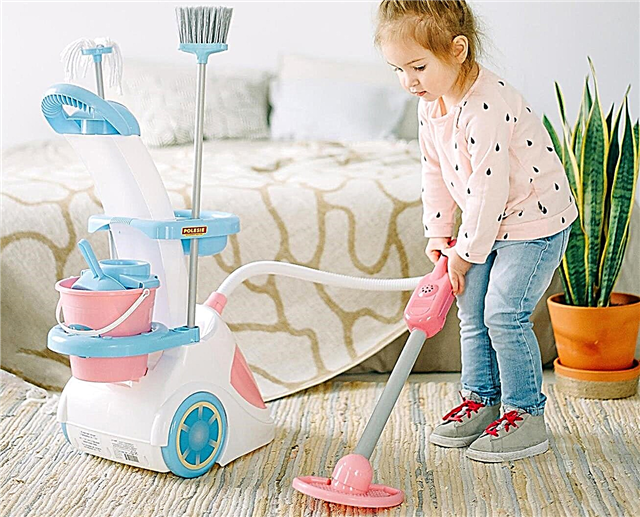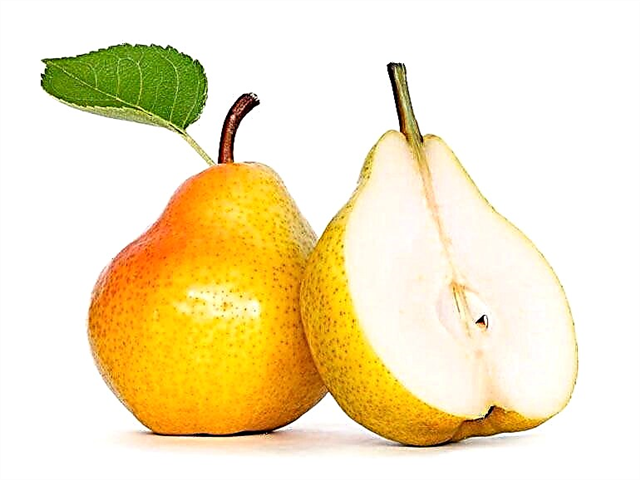
Proper nutrition after childbirth is the key to successful and quick recovery and improvement of lactation. However, not everyone knows how and what a mother can eat during the first few days after the baby is born.
Why is it important to stick to a diet?
Recovery after childbirth, no matter how they are carried out, requires considerable energy costs. The woman has lost a certain amount of blood, she is tired, and the beginning processes of activating the production of breast milk must be provided with a certain energy supply of the body. Proper nutrition will help replenish energy.

But it is impossible to eat everything in a row for the reason that during childbirth the intestines experienced a great load, and its work is temporarily disrupted. The correct diet will help to quickly restore its normal functioning, avoid constipation. This is especially important for those who have stitched - women after cesarean section, episiotomy.
It is difficult and unpleasant to push with the seams, in addition, there is a risk of seam divergence. With this in mind, bowel movements should be as gentle and painless as possible. You won't be able to achieve this by consuming whatever you want.
Loss of blood naturally leads to functional postpartum anemia. A reasonable diet will also compensate for iron deficiency.
If during the first two days the child consumes mainly colostrum, then on the third day, not transitional, but real breast milk. In its composition, everything that a woman eats is certainly reflected.... Now the newly-made mother is responsible not only for her own digestion and well-being, but also for the well-being and metabolism of the child.


Of course, the diet for a woman in labor after a cesarean section is different from the recommendations for a woman who gave birth physiologically through natural routes.
But for everyone, there are several principles of a correct postpartum diet:
- safety;
- diversity;
- correct drinking regime.
Foods that do not contain substances that can cause allergies in a woman or a newborn, as well as aromatic additives and various preservatives are considered safe. It should be noted that food should not contribute to increased production of gas in the intestines... A varied diet is a diet that contains all the necessary substances, vitamins and minerals, as well as fats, proteins and carbohydrates. The calorie content of food for a nursing mother is preferably high.
Particular attention is paid to the drinking regime, especially in the first two days. Blood loss is a condition that needs compensation. For this reason it is important to drink at least one and a half liters of liquid on the first and second day, and then, when milk comes, limit the liquid to 800 ml per day. This is important in order not to create prerequisites for increased lactation, which can cause lactostasis and inflammation of the mammary gland ducts.
Nutrition in the hospital is fully consistent with these three principles. Anything that relatives bring to the maternity hospital must also meet the basic requirements.


Diet after physiological birth process
Whether it is possible to eat immediately after childbirth, what foods to eat, depends on how the childbirth went. If they were light, then a woman can eat in a few hours without severely limiting herself, but within the framework of permitted products, which can be found below.
Difficult childbirth, accompanied by ruptures or episiotomy, large blood loss, impose some restrictions on the nutrition of the parturient woman. It is not worth pushing with the seams in the perineum, otherwise there is a risk of damaging their integrity, so not everything can be eaten. Mashed potatoes and light cereals are considered preferable. Any solid or thick food can cause constipation.
When the birth is over, there is an intense process of uterine contraction. To prevent the reproductive organ from being interfered with by swollen intestinal loops, it is important not to eat anything that can lead to fermentation in the intestines.
In order not to strain the already functionally suffering intestines, it is impossible to take raw vegetables and fruits in the early period (up to 10 days). Too fatty food increases the fat content of mother's milk, and the baby does not yet have the necessary supply of enzymes for easy assimilation of fats.


All products 3-4 days after the birth process should be eaten exclusively thermally processed... Porridge, mashed potatoes, soups, baked apples, pears, lean meats, fish, cottage cheese and kefir are allowed. Raw vegetables and fruits are recommended to be gradually added to the diet not earlier than after 30 dayswhen the baby's digestive system adapts and gets stronger.
The main rule is nothing fatty, fried and smoked. All food should be cooked boiled, stewed, baked or steamed.
If the postpartum woman does not know if the spouse is allergic to any foods, then it's time to talk to him and his mother on this topic. Children quite often inherit allergic reactions and a predisposition to negative reactions of the body to certain substances. To keep your child safe, it is important to consider which foods should be avoided due to both parent's allergies.
Meals need to be organized so so that a woman can eat at least six times a day, but in small portions - within 400 g at a time... Such a regime will not only contribute to the establishment of breastfeeding, but will also be an excellent platform for getting rid of extra pounds faster.
It is recommended to add new products one at a time and in small quantities. This is important so that possible allergic reactions in babies can be noticed in time. If in 24 hours there is no rash or digestive problems in the baby, then such a test product can be increased in dosage. If an allergy occurs, then it must be excluded.


Diet after surgery
Women who have given birth by surgery will have to limit their own appetites to a greater extent. Surgery to open the abdomen requires a more gentle and long-term recovery. It is impossible not to take into account the effect of the medicines that were used to provide anesthesia. Their action continues for several days after the birth of the baby.
The first day on the COP is recommended to starve. Before the operation, an enema was done, so the intestines need to remain empty for at least 24 hours so as not to squeeze the sewn uterus.
Constipation is also dangerous, therefore it is necessary to "start" the functioning of the intestine after the operation gradually and smoothly. The first 24 hours can be drunk in an amount of no more than 1.5 liters of liquid, for example, pure water. You can also dilute it with a few drops of lemon juice. By the end of the day, it is recommended to eat a low-fat broth made from beef or chicken breast without spices, with little or no salt, in two decoctions.
The next day, white crackers can be added to the broth, cooked in the oven from the most ordinary white bread, without spices. On the second day, the diet becomes more varied due to the intake of mashed potatoes without the use of butter and milk, as well as tea or compote. By the end of the second day, it is usually allowed to eat meat in cans for baby food.
After two days, you can eat porridge, but it must be cooked in water, without oil. Rice and semolina should not be eaten. You can add steam cutlets and kefir. On the fourth day, the postpartum woman, according to the rules of medical nutrition, can switch to a general menu and eat what is allowed for all breastfeeding women.


Grocery list
Catering table for the first 10 days
For some products and product categories from the above table, the ban is lifted after 1 month. Processed cheeses, any canned food, fast food, sausages and sausages, ham, ketchup and mayonnaise, spices, mushrooms, preserves and jams, citrus fruits will remain prohibited.
It should be noted that you cannot eat foods that increase gas formation. This includes all legumes, yeast, and foods that contain them, including baked goods. Also, you cannot drink kvass, eat grapes, white cabbage.


Useful Tips
The first days after childbirth are very important for the formation of the baby's immunity, for its adaptation, so you should not complicate the child's already difficult task by changing the chemical composition of milk with your own nutrition for the worse. Mother's milk of proper quality is an important factor in the full development of an infant in the first 10-14 days after birth. In the first two weeks, the issues of proper organization of their own nutrition for a nursing mother need to be given as much attention as possible.
First of all, you need to understand that you can't starve, because this does not contribute to either weight loss or normal lactation. Also you should not sit on mono-diets that prescribe fasting days on one product... With such a diet, the mother will feel hungry and unhappy, and the baby will not receive all the substances he needs from breast milk.
It is necessary to think over the diet for several days in advance - this will help in purchasing the necessary products and will facilitate the task of choosing food for a particular breakfast or lunch.
All products for a nursing mother who gave birth a few days ago should be of exceptionally high quality, fresh, from trusted manufacturers. For this reason, it is not worth buying cottage cheese from the farmers' summer cottage for the mother-to-be - it is better to take a box of cottage cheese in the store, since gardeners at roadside and green dachas, by and large, are not responsible for the freshness, quality and compliance with sanitary standards.


After leaving the hospital, it is important to immediately plan your meals for the coming days.
Everything that is planned to be eaten per day must be divided into 6 receptions. It should be borne in mind that each of them must contain proteins, fats and carbohydrates. You should also pay attention to the content of vitamins and minerals.
There is no need to overload the stomach before a night's rest - the last snack of the day should be made light, for example, only cottage cheese or exclusively fruit. More carbohydrates (cereals) should be consumed in the morning, and try to eat more protein in the afternoon and evening.
For information on what a nursing mother can eat in the first days after childbirth, see the next video.



